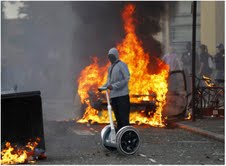Posted by Sweetpea
On holiday, I bought myself a new book of poetry by one of my favourite poets, Billy Collins, published by Picador Poetry. What a treat:
Every morning since you disappeared for good,
I read about you in the daily paper
along with the box scores, the weather, and all the bad news.
Some days I am reminded that today
will not be a wildly romantic time for you,
nor will you be challenged by educational goals,
nor will you need to be circumspect at the workplace.
Another day, I learn that you should not miss
an opportunity to travel and make new friends
though you never cared much about either.
I can’t imagine you ever facing a new problem
with a positive attitude, but you will definitely not
be doing that, or anything like that, on this weekday in March.
And the same goes for the fun
you might have gotten from group activities,
a likelihood attributed to everyone under your sign.
A dramatic rise in income may be a reason
to treat yourself, but that would apply
more to all the Pisces who are still alive,
still swimming up and down the stream of life
or suspended in a pool in the shade of an overhanging tree.
But you will be relieved to learn
that you no longer need to reflect carefully before acting,
nor do you have to think more of others,
and never again will creative work take a back seat
to the business responsibilities that you never really had.
And don’t worry today or any day
about problems caused by your unwillingness
to interact rationally with your many associates.
No more goals for you, no more romance,
no more money or children, jobs or important tasks,
but then again, you were never thus encumbered.
So leave it up to me now
to plan carefully for success and the wealth it may bring,
to value the dear ones close to my heart,
and to welcome any intellectual stimulation that comes my way
though that sounds like a lot to get done on a Tuesday.
I am better off closing the newspaper,
putting on the clothes I wore yesterday
(when I read that your financial prospects were looking up)
then pushing off on my copper-coloured bicycle
and pedaling along the shore road by the bay.
And you stay just as you are,
lying there in your beautiful blue suit,
your hands crossed on your chest
like the wings of a bird who has flown
in its strange migration not north or south
but straight up from earth
and pierced the enormous circle of the zodiac.

